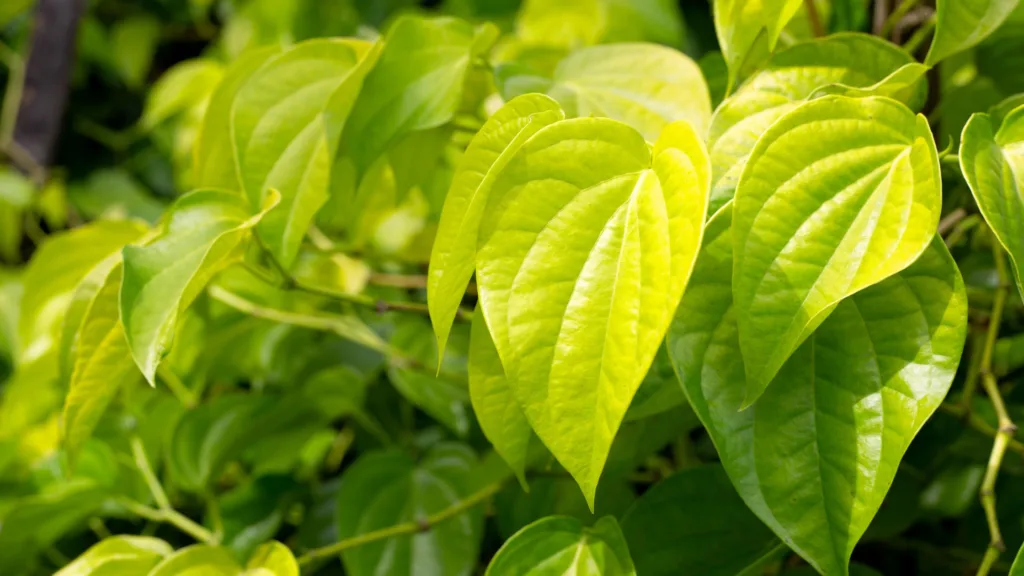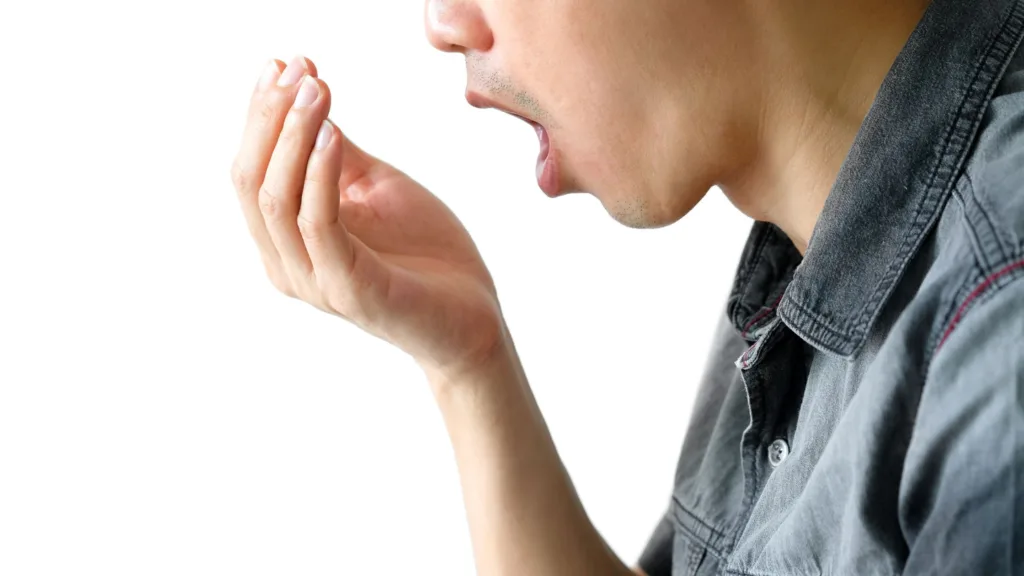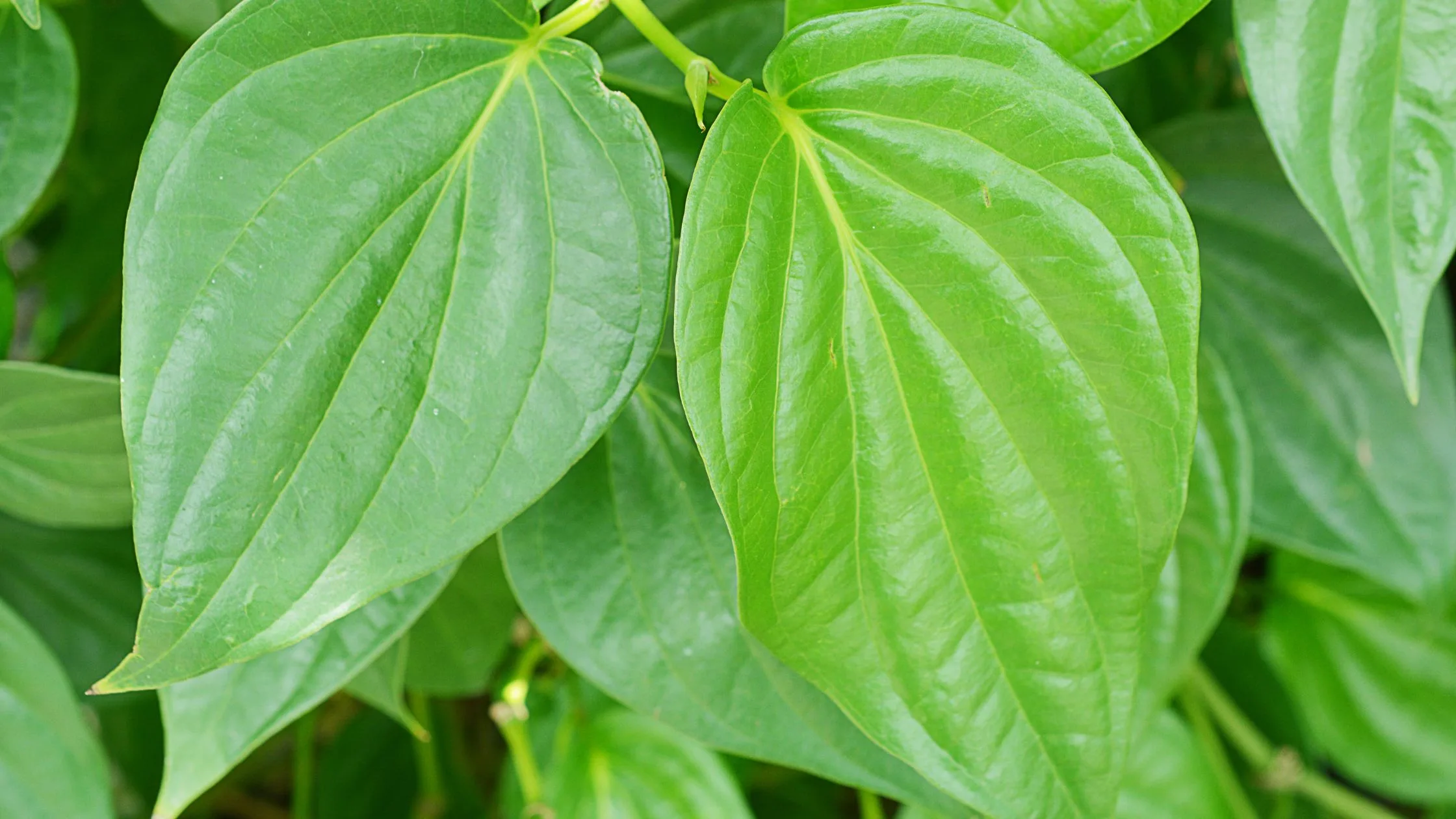Health Benefits of Betel Leaves for Diabetes and Stress Reduction: Betel leaves, also known as paan, have been an integral part of Indian tradition for many centuries. The tiny but powerful leaf has won the hearts and tastes that of millions Indians. From weddings to celebrations paan is an essential element of any occasion, and is able to make its way into the hearts of young and old. Did you have the knowledge that paan isn’t just a tasty and enjoyable leaf, but also loaded with health benefits? You read it right! From preventing anxiety to managing diabetes the humble leaf is a source of many medicinal properties that could help you stay healthy.
As per Research Gate, around 15 to 20 million people living in India use betel leaf each year. The betel leaf is grown over 55,000 hectares across India and has a production rate of around nine million dollars. On average, around 65 percent of the crop is sourced directly from West Bengal.
The nutritional value of betel leaves
Betel leaves possess anti-diabetic cardiovascular anti-inflammatory, anti-ulcer as well as anti-infectious properties. For 100 grams of betel leaves, they are a good source of 1.3 milligrams of Iodine 4.6 milligrams potassium 1.9 mole or 2.9 milligrams of vitamin A, thirteen micrograms vitamin B1 as well as 0.63 or 0.89 micrograms of Nicotinic acid.

Betel leaves are beneficial to health and have many health benefits.
Let’s discuss the advantages of betel leaves and the ways paan could be beneficial to your health:
1. Helps manage constipation
Betel leaves are thought to be an antioxidant superpower which keep the pH within the body at a normal level and help with stomach-related issues. Betel leaves are particularly beneficial for constipation sufferers. To ease stomach issues crush the leaves of betel and then soak them over night in water. After waking early in the day, strain the liquid and sip it with an empty stomach.
2. Maintains the health of your mouth
Betel leaves are rich in antimicrobial qualities that offer the relief needed from breath problems and yellowing of teeth and plaque as well as tooth decay. Inhaling a tiny amount paste made of betel leaves after eating can benefit dental health. It also helps relieve toothache and swelling, gum pain and oral infections. Nutritionist and celebrity Shweta Shah explains that betel leaves contain antiseptic qualities that naturally exist. They help to stop the development of bacteria in the mouth, and also improve oral hygiene.

3. Benefitful for the respiratory system
Betel leaves are primarily employed in Ayurveda to treat respiratory illnesses such as bronchitis, cough, and asthma. The substances present in the leaves aid to alleviate congestion and aid in breathing.
4. Relieves stress
Chewing betel leaves gives relief from anxiety and stress. It calms the mind and body and the phenolic substances found in betel leaves help to eliminate an organic chemical called catecholamine out of the body. So, chewing betel leaves helps to reduce the frequency of mood fluctuations.
5. Controls diabetes
Betel leaves contain anti-hyperglycemic qualities that help control the effects of sugar. Betel leaves help to prevent the level of glucose in the blood from growing. Patients with type 2 diabetes can benefit from chewing its leaves an empty stomach before waking up.
In addition betel leaves offer a variety of benefits for hair as helping grow your hair faster and can make them more voluminous. Try the herbal hair treatments to achieve the hair you’ve always wanted!

How do you consume betel leaves?
For the best results, betel leaves must be consumed as follows:
1. To manage the effects of diabetes, it is recommended that you chew betel leaves on a empty stomach every morning.
2. If you’re stressed If you are feeling stressed, try eating sweet or plain paan. The phenolic compounds in it will to boost your mood.
3. To relieve constipation To relieve constipation, soak betel leaves in water for a night. Drinking this water once it has been filtered in the morning will provide relief from constipation.





